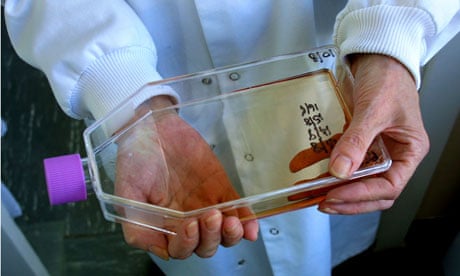The full implications of the recent ban on stem cell patents by the Grand Chamber of the Court of Justice of the European Union could take a long time to assess. From a legal perspective, the court's ruling is seriously flawed.
In a case brought by Greenpeace against the German neuroscientist Oliver Bruestle, the EU court controversially ruled that an unclear and much litigated prohibition in EU patent law on "commercial and industrial uses of human embryos" applies to therapeutic products and therapies containing embryonic cells when the derivation of the cells or lines originally required the destruction of human embryos.
At a stroke, the court's judgment has made it impossible to patent research that is lawfully practised in a substantial number of EU states, including research on established cell lines that were ethically obtained with the consent of donors and publicly funded by member states and the EU itself.
There are no commercial or industrial uses, or "farming" of human embryos in Europe. This alone should have set alarm bells ringing in the judges' minds. Unfortunately it did not.
The court reasoned that a uniform "autonomous" European definition of the terms "human embryo" had to be adopted in the EU directive on biotechnological inventions in order to avoid damage to the internal market as a result of differences in national laws.
The court further reasoned that the concept of a human embryo had to be understood in a very wide sense to ensure respect for human dignity which, it said, precludes destruction of human embryos. Accordingly, the specific prohibition was declared to extend not only to patents on uses of human embryos but to any present and future therapeutic products containing the morally tainted cells.
In this respect, the court's ruling went even further than the Opinion of the Advocate General who, last March, controversially compared the uses of human embryos in research to the illegal removal of organs from prisoners in the former Yugoslavia.
From a legal perspective, the court's ruling suffers from three serious flaws. First, it ignores the drafting history of the directive, which shows that the intention was never to render unpatentable research that is lawful in member states.
Second, the court's stance that there is a uniform European view of what respect for human dignity requires in relation to human embryos is at odds with other EU legislation adopted in the past decade.
Opponents of embryonic stem cell research have repeatedly sought to force a Europe-wide ban, most recently in the European Union directive on human tissue and cells (2004) and the Regulations on advanced therapies (2007). In both cases, the attempts have failed because there is no consensus to this effect in Europe. Instead, there is a diversity of laws and moral cultures reflecting national differences that the principle of subsidiarity requires to be respected.
The court's ban will deter investment and frustrate the EU's goal of harmonising laws to speed up the development of regenerative treatments that are anticipated to offer huge therapeutic potential, notably against diseases such as Alzheimer's and Parkinson's.
Finally, the ruling is inconsistent with the settled law of the European Court of Human Rights.This court has consistently applied the "margin of appreciation" doctrine in relation to the rights of the embryo. In the leading case of Vo v France (2004) the Grand Chamber of the court said that it was not prepared to intervene in the debate about who is a person and when life begins because the definition and status of the embryo "remains an area where fundamental differences are encountered, based on strong arguments".
The Vo case was applied by the European Court of Human Rights in Evans v UK (2006) where Mrs Evans sought to override the refusal of her former partner to consent to the use of frozen embryos. Her claim that UK law was in breach of the European Convention on Human Rights in failing to protect the life of frozen embryos was unanimously rejected. The court reiterated that the issue of when the right to life begins "comes within the margin of appreciation which the court generally considers that states should enjoy in this sphere".
There is no right of appeal against the EU court's ruling. But the ruling raises important questions about the compatibility of EU law with the European Convention on Human Rights, which the EU is bound to respect. Since the adoption of the Lisbon Treaty, the EU has been required to accede to the convention. Under the current proposals for accession, the EU court would be subordinated to the human rights court, which in turn would have ultimate authority on the compatibility of EU law with the convention.
The European Court of Human Rights would have the power to declare that the EU court's ruling is in breach of the convention and a disproportionate interference with the autonomy of member states. The two courts might seem to be on a collision course. But statements issued by the presidents of the respective courts early this year indicate that the human rights court has little inclination for a fight.
The EU court's ban on stem cell patents has set a dangerous legal precedent on the constitutional protection of fundamental values in a morally sensitive field. Inevitably, the ruling raises questions about the independence and accountability of the EU court's judges and will fuel debates about the competence and legitimacy of European supra-national courts.
Beyond Bruestle, judicial overreach and the legal uncertainty created by the growth and complexity of EU law could, paradoxically, pose a risk both to the economic competitiveness of the EU and to the protection of fundamental human rights in Europe.
Aurora Plomer is professor of law and bioethics at Sheffield University and co-editor of the Oxford University Press collection Embryonic Stem Cell Patents: European Law and Ethics (2009). She contributes to the Matrix Chambers EU law blog Eutopia Law

Comments (…)
Sign in or create your Guardian account to join the discussion